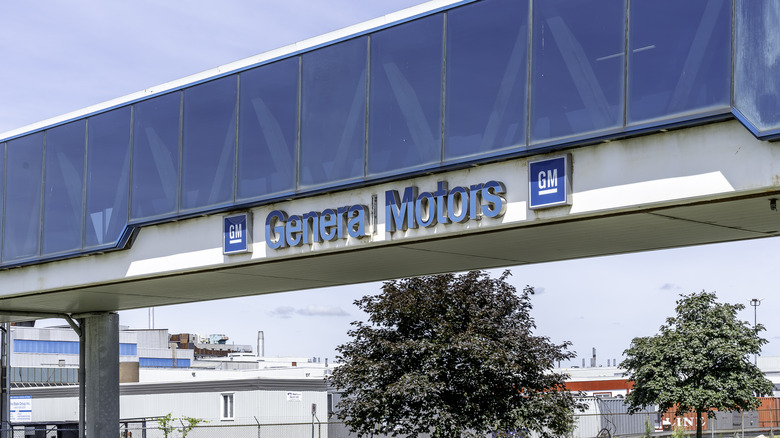Honda And GM Call Off Joint Plans For Cheaper, Smaller EVs
It's been revealed that Honda and General Motors are no longer collaborating in the development of affordable electric vehicles. The $5 billion collaboration began in 2022, with the two companies planning to share production costs to get new EVs on the market at under $30,000 starting in 2027 in North America. At this price, the proposed EVs would be cheaper than the Tesla Model 3 and Chevy's own Equinox SUV. These EVs were expected to utilize new architecture built on GM's next-gen Ultium battery technology.
The discontinuation of this collab comes only a day after GM withdrew its 2023 profit outlook. This news does not mean the companies are abandoning EV production. As reported by The Verge, GM spokesperson Sanaz Marbley stated in an email that "each company remains committed to affordability in the EV market," and companies would continue their efforts separately. GM added that its "focus over the next two years will continue to be on scaling the Ultium Platform and battery cell capacity." Additionally, Honda noted that the canceled partnership does not affect its plan to exclusively sell EVs by 2040.
UAW strike could be to blame
The two companies did not outright say the reason the partnership was canceled. In his statement, Honda CEO Toshihiro Mibe told Bloomberg TV, "After studying this for a year, we decided that this would be difficult as a business," However, this news comes amidst the sixth week of the United Auto Workers strike, which is affecting Detroit based auto company. GM noted yesterday that the strike is hurting its bottom line, and as a result, it's not sure if it can hit its $14 billion in profit for the year. UAW also recently targeted one of GM's most lucrative plants, increasing the hurt on the company to $200 million a week, according to GM executives. This mounts on the already $800 million in costs.
According to Honda, this break would not impact its separate partnership with GM and Cruise to get a driverless ride service up and running in Japan by early 2026. It also stated that its plans for getting these vehicles on the road would not be affected by the California government recently suspending the robotaxis in the state. California recently revoked the permit for these vehicles after calling them a risk to the public, alleging that Cruise "misrepresented any information related to safety of the autonomous technology of its vehicles." Honda and GM are also currently collaborating on hydrogen-powered vehicles.

